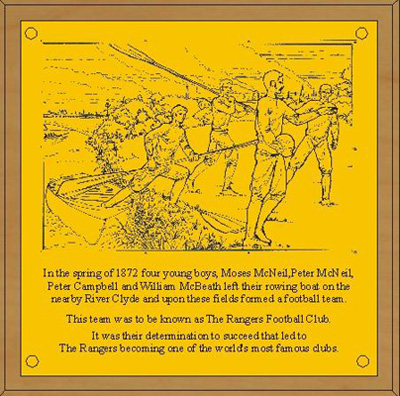There's a report on the BBC website today about the effectiveness of subliminal messaging. The Professor behind the study states:
"We have shown that people can perceive the emotional value of subliminal messages and have demonstrated conclusively that people are much more attuned to negative words."
I've just been reading Iain Gray's speech to the Labour party conference, and suspect he had an advance copy of the report... David Cameron has come a long way. He isn’t hugging hoodies and huskies any more. He is embracing Europe’s extremists.
In Scotland we are not surprised at the company Tories keep. We have watched them nuzzling up to the nationalist government from day one.
Not so subtly conflating the left of centre, social democratic party I'm proud to be a member of in this way is wrong, misleading, and deeply dirty. It upsets me.
I'm more deeply disturbed though that the leader of Labour in the Scottish Parliament would use the tragic death of a child as a stick to beat the Government with.
My Scotland would not be a country where two year-old Brandon Muir dies at the hands of his mother’s boyfriend and the First Minister says “everyone did all they could.” My Scotland would be a country where we would not give up on the 20,000 children living as Brandon Muir lived.
Other tragedies have occurred in England, but I don't believe that I heard anyone saying Gordon Brown or Tony Blair, or even previous governments were directly accountable for these. There has been an investigation, and responsibility taken. There's absolutely no evidence to suggest that in Scotland we are 'giving up' on vulnerable children, and it's irresponsible for Iain Gray to suggest so.
Next, on to the spectre of Thatcher. Spooky stuff, especially for the 18 year-old first-time voters weren't even born when she was in office.
"The SNP believe that the unemployment, the social division, the fractured lives that the Tories would bring are all a price worth paying for their campaign for separation."
Utter rubbish. For one, we work for the betterment of Scotland's people and would never be so cynical and cruel. Secondly, there's no proof that this will actually happen. Thirdly, and most significantly, the widest gap between rich and poor in this country has opened up under a Labour Government. This following quote comes from the Guardian, and the figures are drawn from the Department of Work and Pensions own figures. I don't think I need say any more.
"The data shows that the second poorest 10% of households has also had to make do with less since 2005. Overall, the poorest 20% saw real income fall by 2.6% in the three years to 2007-08, while those in the top fifth of the income distribution enjoyed a rise of 3.3%. As a result, income inequality at the end of Labour's 11th year in power was higher than at any time during Margaret Thatcher's premiership."
What would Labour do differently?
"We began to heal the Tory legacy in places like Ravenscraig."
Oh really? My grandparents live in Motherwell and Wishaw, the place their MSP Jack McConnell described as a "pigsty". I don't see any evidence of healing on the part of the Labour Council in North Lanarkshire. I see my grandparents struggle to get their choice of food in towns with fewer and fewer quality shops - neither town now has a fishmonger, and Wishaw's post office is now at the back of the Spar. It used to have an additional one at the bottom of the town, but this was closed under the last round of Labour's cuts.
What have the SNP done? I don't have a complete list to hand, but Motherwell and Wishaw should see some benefit from the £2,745,000 awarded to North Lanarkshire Council under the Town Centre Regeneration Fund which certain Labour bloggers have claimed is a cynical ploy. Money has also gone to social housing, and to support local businesses.
Mr Gray then moves on to the politics of the playground. Oooooh, go on. I double dare you...
"Alex Salmond refused to debate with Jim Murphy – because, he said, he debates with me, every Thursday.
What’s so special about Thursdays Alex? How about St Andrews day? Clear your diary. Debate my vision of Scotland against yours. Tell us which side you are on. I dare you."
The First Minister is on Scotland's side; Mr Grey on Jim Murphy's.
The parting shot by Mr Grey is really something. Having given no evidence through his speech of what Labour are really for - what they would do differently, what their movement is about, he completes his speech thus:
"Last year conference, I said that Labour MSPs would stand shoulder to shoulder with MP colleagues, and with our Prime Minister in the Glenrothes by election and we would elect Lindsay Roy the new Labour MP.
We did.
And together we can do the same in Glasgow North East and make Willie Bain a Labour MP. And then we will make Gordon Brown Prime Minister again.
Together we will defeat those whose sole creed is self interest, whose sole purpose is division whose sole principle is expediency. Whether they are Tories, or Nationalists."
Nothing about what Mr Roy has achieved, nothing about why Willie Bain would do a better job in Glasgow North East than Michael Martin, and nothing about why Gordon Brown should be allowed to drag the UK further into the mire. It's for their own self interest, power for power's sake.
It's not for nothing that he has, peppered liberally through the speech the phrase:
"That is what happens when Labour loses power."
Iain Gray has seen it, and is at Labour conference to warn his colleagues how frustrating it is to be there.





